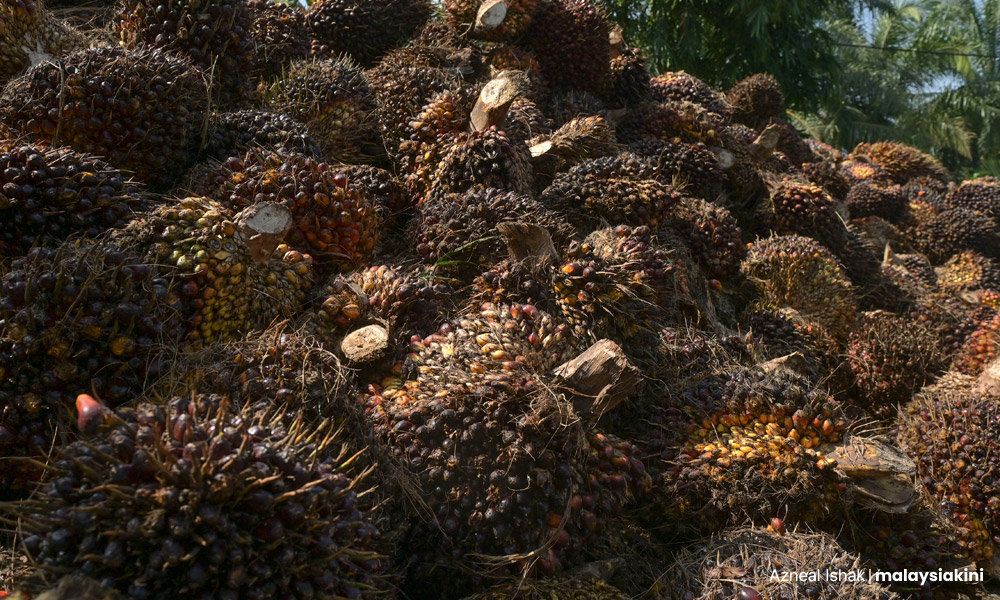MP SPEAKS | The government gives all sorts of incentives and tax holiday to attract foreign companies to invest in Malaysia but treat its own local investors badly.
In an article written by Pankaj C Kumar in The Star on June 6, the effective tax imposed on the shareholders of an oil palm plantation company is as high as 54 percent of the profit.
The government imposes a corporate income tax, prosperity tax, Windfall Profit Levy, cess payment, sale tax and export levy on such a company.
The government does not give any aid when such a company suffer losses.
The government should only impose a corporate income tax of 25 percent of the profit on oil palm plantation companies as it does on other businesses.
The government should also immediately cease to collect Windfall Profit Levy on oil palm Fresh Fruit Branches (FFB) for the following two legal reasons:
The Windfall Profit Levy (Oil Palm Fruit) Order 2008 (hereinafter called the ‘2008 Levy Order’) made by the minister has expired. Section 7 of the Windfall Profit Levy Act 1998 provides that an order determining the amount of levy to be levied under the act shall at the next meeting of the Dewan Rakyat, be laid on the table of the Dewan Rakyat and it shall cease to have an effect on the expiration of the period of 120 days from the date it is so laid unless extended by a resolution of the Dewan Rakyat which I am not aware any such resolution has been made.
Even if the 2008 Levy Order is still in force, it is not valid because it becomes unconstitutional due to its discriminatory nature after being amended by Windfall Profit Levy (Oil Palm Fruit) (Amendment) (No 2) Order 2009 (hereinafter called ‘2009 Amendment Order No.2’) in contravention of Article 8 of the Federal Constitution which provides that all persons are equal before the law. The 2009 Amendment Order No 2 exempts oil palm holdings in a group settlement area under the Land (Group Settlement Areas) Act 1960 from Windfall Profit Levy. Such discrimination is not allowed under the Federal Constitution.
No windfall profit
Even if the 2008 Levy Order is valid, the government should not further impose Windfall Profit Levy on the oil palm industry as there is no windfall profit in the industry at all.
The government currently imposes Windfall Profit Levy on FFB when the Crude Palm Oil (CPO) price exceeds RM3,000 per metric tonne.
Costs of production for one metric tonne of CPO is now about RM3,000. How can a Windfall Profit Levy be imposed when the company barely make any profit?

There is a huge jump in the cost of production recently due to the following reasons:
Lack of workers. The government has failed completely in managing the availability of workers for the plantation sector as well as other sectors. Cost of harvesting a metric tonne of FFB has increased from RM30 per metric tonne (equivalent to RM150 if measured by CPO) to as high as RM150 per metric tonne (RM750.00 per metric tonne if measured by CPO). The costs of harvesting differ from place to place depending on how difficult it is to harvest the FFB. Due toa severe lack of workers and the sudden surge in CPO price exceeding RM7,500 per metric tonne (now dropped to below RM4,000 per metric tonne), plantation owners were willing to pay workers very high price for FFB harvesting if not the FFB will be left to rot. Productivity has also dropped as plantations are not well managed due toa lack of workers. FFBs are usually harvested every two weeks but due to lack of workers they are now harvested once every 30 days causing ripen fruits to drop to the ground to rot or if collected it will cost about RM200 per metric tonne to collect such loose fruits.
Fertiliser prices have tripled. Costs of fertilisers form about one-third of the total costs of production of FFB.
Costs of weedicides have also more than doubled.
The imposition of a three percent Windfall Profit Levy is a huge amount added to the costs of production. To a person unfamiliar with the industry, the imposition of a three percent Windfall Profit Levy gives an impression that it is only three percent tax on the extra-ordinary profit made by the company.
It is not! It is computed using this formula: three percent (CPO price for the month – RM3,000). It is equivalent to 8.46 percent of the gross FFB sale proceeds (not profit) for May 2022 and 7.63 percent of the gross FFB sale proceeds for June 2022.
Percentage of Windfall Profit Levy to sale proceeds of FFB
CPO price for May 2022 – RM6,870.00
Windfall Profit Levy: three percent of (RM6,870 – RM3,000) = RM116.19 per metric tonne.
The sale price of FFB for May 2022 is about RM1,374 per metric tonne (20 percent of CPO price).
Therefore, the Windfall Profit Levy is 116.19/1,374 X 100 percent = 8.46 percent of FFB sale proceeds.
CPO price for June 2022 – RM6,106
Windfall Profit Levy: three percent of (RM6,106 – RM3,000) = RM93.18 per metric tonne
The sale price of FFB for June 2022 is about RM1,221.20 per metric tonne (20 percent of CPO price).
Therefore, the Windfall Profit Levy is RM93.18/RM1,221.20 x 100 percent = 7.63 percent of FFB sale proceeds.
The palm oil industry is a very important industry to Malaysia and the government should appreciate all those who have made this industry a success.
The government, however, treats them badly when compared to the treatment given to foreign investors as the palm oil industry is the most heavily taxed commodity in Malaysia.
NGEH KOO HAM is Beruas MP and DAP MPs' spokesperson on law and Parliament.
The views expressed here are those of the author/contributor and do not necessarily represent the views of Malaysiakini.

